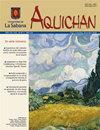Effects of a Healthy Habit Promotion Strategy on Colombian Schoolchildren
Q3 Nursing
引用次数: 0
Abstract
Chronic non-communicable diseases (CNCD) show an increasing tendency, especially in low- and medium-income countries. It is necessary to develop and evaluate strategies to strengthen healthy habits at an early age in these countries. Objective: To determine the effect of the health promotion strategy “United for Healthier Kids” (U4HK) on health lifestyle habits of a group of Colombian schoolchildren for the 2018-2020 period. Materials and methods: This quasi-experimental study features treatment and control groups and pre- and post-intervention measurements. The study involved 1,011 schoolchildren between six and twelve years old from seven rural and urban schools of the Sabana Centro region of Colombia. We used the Healthy Habits Measurement Tool, previously validated in Colombia. Results: When comparing within and between groups, the UHK strategy showed statistically significant differences in healthy habits (p < 0.05) related to nutrition and physical activity in schoolchildren. Conclusions: The U4HK strategy had a positive effect and impact on the schoolchildren’ healthy habits, especially in the ‘chooses to drink water’ and ‘moves more’ components. There were statistically significant differences (p < 0.05) between groups in four out of the five categories: drinks more water, chooses nutritios and varied options, eats and cooks as a family, and moves more. The U4HK strategy responds to current and future health problems in schoolchildren and helps prevent chronic diseases. It could be replicated in similar populations.促进健康习惯战略对哥伦比亚学童的影响
慢性非传染性疾病呈上升趋势,特别是在低收入和中等收入国家。有必要在这些国家制定和评估加强早期健康习惯的战略。目的:确定2018-2020年期间,健康促进战略“联合健康儿童”(U4HK)对一组哥伦比亚学童健康生活习惯的影响。材料和方法:这项准实验研究包括治疗组和对照组,以及干预前后的测量。这项研究涉及了来自哥伦比亚萨巴纳中部地区7所农村和城市学校的1011名6至12岁的学生。我们使用了健康习惯测量工具,该工具此前已在哥伦比亚得到验证。结果:在组内和组间比较,UHK策略在小学生营养和体育活动相关的健康习惯方面差异有统计学意义(p < 0.05)。结论:U4HK策略对小学生的健康习惯有积极的影响和作用,特别是在“选择喝水”和“多运动”两个部分。在多喝水、选择营养和多种选择、全家一起吃饭和做饭、多运动这5个方面,两组之间有4个方面的差异有统计学意义(p < 0.05)。“U4HK”策略针对学童目前及未来的健康问题,并协助预防慢性疾病。它可以在相似的人群中复制。
本文章由计算机程序翻译,如有差异,请以英文原文为准。
求助全文
约1分钟内获得全文
求助全文
来源期刊

Aquichan
NURSING-
CiteScore
1.10
自引率
0.00%
发文量
32
审稿时长
>12 weeks
期刊介绍:
Aquichan, a journal of medical and health sciences from the field of health sciences and, more specifically, nursing, publishes articles resulting from investigations from a point of view of epistemology, evidence-based practice, chronic care, promotion and prevention. The articles are for the academic and scientific community, both in Colombia and abroad.
The journal accepts original, previously unpublished papers in Spanish, English, and Portuguese, which are the product of a research or a review and which are not being evaluated by other scientific journals, either in print or electronic form.
 求助内容:
求助内容: 应助结果提醒方式:
应助结果提醒方式:


